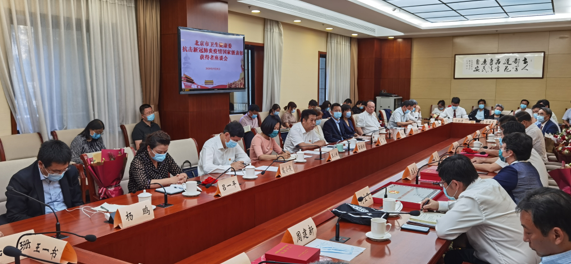By Samantha Jones-
The Beijing Health Commission has announced that from next week anyone entering libraries, museums, cinemas, art galleries, sports and fitness venues, entertainment venues or any crowded places in the capital “must be vaccinated”.
The new policy is a remarkable U turn from the country’s past policy which was prohibited vaccine mandates,
China has previously resisted relying on strict lockdowns, contact tracing, automatically tracking people’s travel history and mass PCR testing to try to stamp out outbreaks as they arise.
However, employees working in “high-risk” sectors, including public transport, have previously been required to have been vaccinated.
The mandate represents a sharp change in policy. In July last year, China Daily, a Communist Party-controlled newspaper, said: “Vaccination must be voluntary not compulsory.”
Beijing and Shanghai have controlled outbreaks of the Omicron variant in recent weeks and months.
Other big cities are struggling with mounting cases, with cases surging in the eastern province of Anhui, near Shanghai. Xi’an, the capital of Shaanxi province, announced lockdown measures after detecting 18 new cases.
France has taken a pretty radical approach when it comes to vaccination. Their policies require people get vaccinated to access shared public spaces. Some countries, such as Ecuador, introduced measures like these as soon as vaccines were available. Other countries brought them in as the Delta wave grew in mid-2021, and some introduced them much later. Some nations adjusted pass-related restrictions as the pandemic progressed.
Many governments also made vaccination a requirement for employment in health care or federal jobs — and numerous private-sector companies followed suit. A few countries focused their efforts on children (requiring vaccination for school entry, for example) or the elderly, issuing fines to unvaccinated people. Among the most punitive measures, Singapore made unvaccinated people pay for health care relating to COVID-19 infections.
Some critics say increases were seen when the gap between announcement and implementation was shorter and when pre-policy vaccination rates were lower. Lu wonders whether this suggests that mandates overcome people’s vaccine hesitancy or their complacency about COVID, which had previously been reinforced by social norms.
Analysts found that some countries witnessed pronounced spikes in uptake, most strongly in France and Italy. In France, they looked across the 20 days between the policy’s announcement and its implementation, as well as the subsequent 40 days. They estimated that an extra 8.6 million doses of vaccine were delivered as a result.
Observers that the certificates accounted for an extra 979,000 people, roughly 2.9% of the eligible Canadian population, becoming vaccinated. “Just looking at the graphs of daily new vaccinations, you can see very big spikes,” he says.

